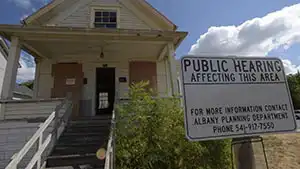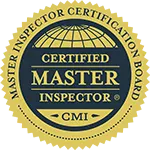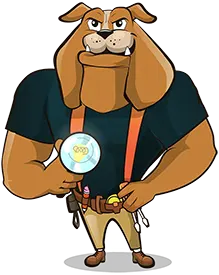How long does a home inspection take?
These are the 4 factors that affect the time it takes to do a professional home inspection:
#1 The size of the home

The larger the home, the longer it takes. There are more places to go and more things to see. That part is pretty straightforward.
#2 Condition of the home

A home is like a slide. The smoother it is, the faster the inspection.
So the time it takes to perform a home inspection has as much to do with the condition of the home as the home inspector’s skill.
I can’t tell you how many times I’ve inspected a home that took longer than expected because of the stop and go nature of analyzing all those defects.
I block out 2 hours for a home under 1,499 sq. ft.
#3 Distractions

Somewhere along the line, people began thinking it was a good idea to ask the home inspector question while they work or have loud conversations while they follow along.
Let me tell you. It’s not.
You’re paying that home inspector several hundred dollars (sometimes thousands) to concentrate, solve big problems, and explain it to you in a way you understand.
Doing that dilutes the very expertise you depend on to avoid nasty surprises after you move in.
This is why a home inspection is NOT a hands-on workshop in home ownership.
In fact, the home inspector is paid to do 2 things:
- Figure out the truth about the home
- Get it across to you
That’s it.
And the fewer distractions:
- The better they can focus
- Fewer missed items
- The clearer the picture
- Better answers to your questions
- Better negotiations for you
- Less you pay for the home
- Fewer surprises after you move in
- More accurate budgeting for repairs
- Less time wasted at the inspection
- Most of all, you’re much happier
Besides, no one likes interruptions while they work.
That’s why I do most talking at the start of the inspection – where I go over the inspection process, jot down your concerns, and set expectations.
Then again, at the end – when I discuss the major areas of the home, address your concerns, and answer your questions.
Please don’t misunderstand. I encourage every person to attend and take part in their home inspection. It not only gives you a chance to talk to me, it makes your home inspection report easier to understand.
So, if you wouldn’t interrupt your surgeon in the middle of surgery, think twice about distracting your home inspector when you’re buying a 6 or 7 figure home.
And that’s STILL not all.
They still have to distill all that information into basic terms you and your real estate agent can understand and use.
Without using technical jargon or confusing concepts.
Because the best home inspection reports are written around a 5th grade level.
In fact, inexperienced inspectors:
4. Home inspector experience

It takes 7-10 years of full-time work to master the home inspection trade.
Because it’s not just about finding problems (which is hard enough).
But when a home inspector is new, they’re learning:
- The components of a home
- How a home works
- Inspection software
- To interpret defects
- To write comments
- To communicate effectively
Nothing is coming easy and they’re trying to do all this without letting the inspection take hours longer than it should.
They’re also learning how to:
- Inspect a home
- Understand the difference between homes of different ages
- Understand the difference between homes from different eras
- Understand the different building materials
- Understand the difference between homes from different areas (rural homes sometimes don’t follow the same rules as homes in the city or suburbs).
- Spot the things that should be there but are missing
- Take longer
- Miss more items
- Misdiagnose problems
- Miscommunicate their findings
Because they’re still learning.
That being said, a 2,000 sq.ft. home in average condition should take between 2 to 2.5 hours to inspect.











